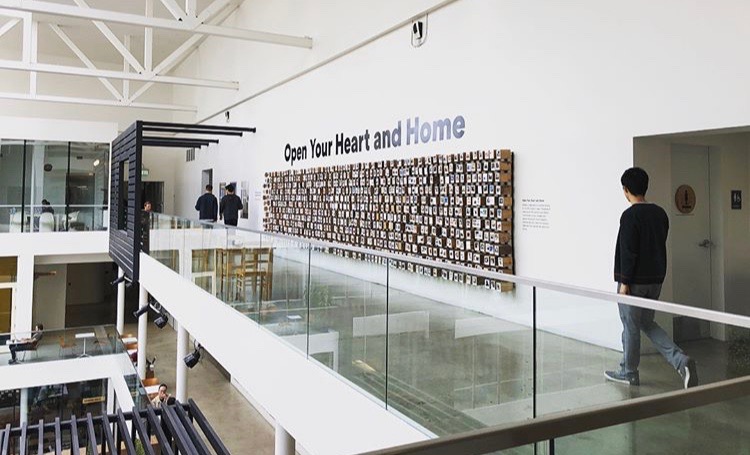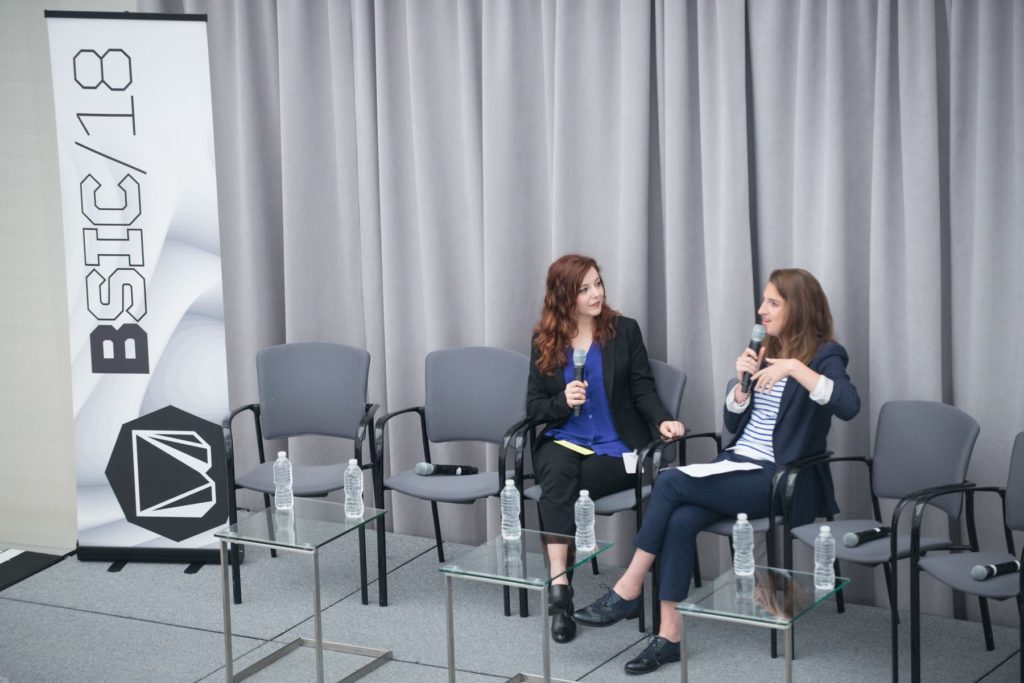The past fortnight has seen our CEO, Joséphine Goube, back in the States finding out how tech giants plan to address global displacement and adding her voice to the growing conversation…
Washington played host to BSIC 18, the Blockchain for Social Impact Conference on June 1st. With blockchain enjoying its time in the sun as the tech culture’s flagship darling, I saw no shortage of social entrepreneurs presenting their ideas for using it to change the world.
Help for refugees was very much on the agenda, and I found it curious to see how few of those presenting their well-researched visions actually had experience on the ground working with refugees.
Take identity, for example. Using blockchain to give refugees a means of identifying themselves to access public services seems like a great idea on the surface. But are we giving refugees the option, or just identity for identity’s sake? Displaced people will have to commit some sort of illegal acts to get to a safe place, as in crossing an international border to escape from death, and I hardly need paint you a picture of what a hostile government might do with a concrete record of a refugee’s movements and activities.
Issues like this, to my mind, just aren’t being given the proper consideration. The temptation to use refugees as guinea pigs for the latest sexy tech risks eclipsing the kind of objective-oriented helpful solutions we like to promote via Techfugees.
Blockchain for blockchain’s sake won’t help anyone but shareholders. It would be far more interesting, and more empowering, to teach kids in refugee camps what blockchain is, so they can apply it to build solutions for their own problems and keep the knowledge in their toolkits for whatever the future may hold.
Accountability is not an option
The idea of accountability was something that continued at the World Refugee Council in San Francisco, which welcomed decision-makers from the likes of AirBnB, Facebook, Whatsapp, and Uber. Giving my take on running a global community of technologists, I brought the conversation around to human-centered design.

To my mind, the proper way to apply tech to the issue of refugees is one which breeds empowerment, not dependency. Otherwise, refugees are simply swapping a government for a tech startup when it comes to how their destinies are controlled.
These startups need to build data accountability into their operations. I chatted with one CEO who’d done some work in Palestine, and he spoke openly about how closely they were tracked by the Israeli secret service. That NGOs are so open about surveillance operations only illustrates how careful we need to be when collecting data to avoid having it fall into the hands of openly hostile actors.
The answer to using tech with displaced people lies in finding a new narrative, a new way to frame the reality of mass displacement, and the political will to back that vision with action. I worry that big names in the world of tech are vulnerable to the same kind of solutionism as senior politicians, just using shiny new technologies to distract from a lack of real political vision for displaced humans.
Real solutions, when they do begin to emerge, will be those which unify society: with locals and migrants working together. They will contribute to a new framework for the way we talk about migration, and they won’t just be handed down on stone tablets from governments.
A matter of principle
The citizens who will end up sharing their communities, or even their homes, with refugees, need a say in the process, not just politicians and big tech players. In fact, maybe, just maybe, these solutions might carry some hint of the idea that exponential growth has left people behind all over the world, and a truly fair society should address that.

These are all principles we built into our charter, our 8 guiding principles, which we released recently to some brilliant feedback. Not only were these principles spoken about at the WRC, they were retweeted by institutions like Stanford University and MIT.
Such a big splash can only be interpreted as vindication, proof that our global community is onto something when we talk about sustainability, inclusivity, and the human reality of displacement.
It is my continuing honor to serve this community and my belief that the values which unite us have a greater role to play as time goes on in building a better world, one which works for everyone.
This post was written by the team at Sookio.
